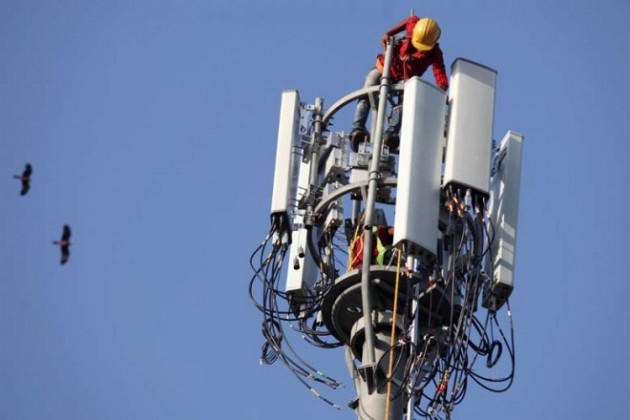 Telecom spectrum auction — conducted in October 2016 – did not attract telecom operators due to several factors.
Telecom spectrum auction — conducted in October 2016 – did not attract telecom operators due to several factors.
The spectrum auction closed within five days — raising only Rs 65,789 crore, about 11.6 percent of the expected Rs 5.66 lakh crore.
High reserve price, high debt and single-digit growth that the industry is currently reeling under were the factors that impacted the spectrum auction.
However, Bharti Airtel bought spectrum for Rs 14,244 crore, Reliance Jio Infocomm for Rs 13,672 crore and Idea Cellular for Rs 12,798 crore. The focus of these three operators was on enhancing their mobile Internet coverage in India. Vodafone is yet to share their achievement in the spectrum auction.
ALSO READ: Reliance Jio buys 269.2 MHz spectrum for Rs 13,672 crore
The failure has been attributed to the high reserve price decided by the regulator and approved by the central government. India has 1,035.12 million mobile phone users including 588.78 million in urban areas and 446.33 million in rural areas.
ALSO READ: Airtel buys 173.8 Mhz spectrum for Rs 14,244 crore
Why spectrum auction failed
Airtel in a statement said despite the large amount of spectrum made available, certain bands did not get any bid from the operators as it made no economic case for them based on the high reserve prices.
ALSO READ: Idea Cellular buys 349.2 MHz spectrum for Rs 12,798 crore
Bharti Airtel said three to four national operators with robust 700 Mhz based broadband networks have the potential to accelerate India’s progress to the top league of digitally enabled nations. The pricing of the 700 Mhz band spectrum needs to be addressed on priority for the nation to benefit from the digital dividend arising out of this high quality spectrum band.
Cellular Operators’ Association of India (COAI) said the lack of enthusiasm on the operators’ part was majorly due to its unrealistic pricing, high debt and single-digit growth that the industry is currently reeling under.
“It is a failure to an extent. The largest chunk of spectrum didn’t find any buyers because of serious miscalculation by the regulator and the central government on the current market value of 700 MHz spectrum. They overpriced it and the players decided to wait till the price becomes more realistic,” said Mahesh Uppal, director of Com First, a telecom consultancy.
A total 2,354 MHz of spectrum was put on block by the government for e-auctioning, but only 965 MHz were sold. The money raised on the first day, of around Rs 53,000 crore, was an early portent that not everyone was enthusiastic about bidding for the airwaves.
However, the Communications Minister, Manoj Sinha tried to put a positive spin on the money raised. “This is the highest ever amount garnered in the last five years. This is a cause of happiness. It’s a big achievement that we could sell 965 MHz, which is more than the cumulative amount sold since 2012,” the minister said.
The auction went through 31 rounds for seven bands –700 MHz, 800 MHz, 900 MHz, 1,800 MHz, 2,100 MHz, 2,300 MHz and 2,500 MHz.
The auction would also fail to help in fully realising the revenue target of Rs 98,994.93 crore that had been provided for in the budget for this year against ‘other communications services’ — the bulk of which is scheduled from the fee paid for spectrum.
The government expects operators to pay Rs 32,000 crore upfront for the spectrum, the minister told reporters after the auction was concluded.
The companies participating in the auction were Bharti Airtel, Vodafone India, Reliance Jio Infocomm, Reliance Communications, Idea Cellular, Aircel and Tata Tele — who together furnished total earnest money of Rs 14,653 crore.
The 700 MHz and 800 MHz went without any interest, as had been feared by the industry and experts owing to the high reserve price. “Since the 700 MHz spectrum is not usable now, it’s was a risk for the companies,” said Uppal.
The total amount of money committed through the auction will not immediately come to the government as the telecom operators have been given the option of both upfront and deferred payment, IANS reported.
India’s biggest telecom did not start too well on Saturday with subsequent days seeing only marginal increments taking the amount to Rs 65,789.12 crore on the fifth day, when the auction had to be called off for lack of further interest.
Baburajan K





